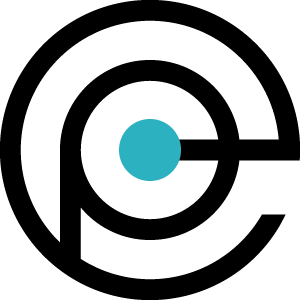What is a Tension Headache?

A tension headache is the most common form of a primary headache. It happens intermittently in up to 80% of the population. As the symptoms are not as severe as a migraine, Tension Headache is only considered a problem if it becomes frequent or chronic.
What are the Symptoms of a Tension Headache?
Frequent Tension Headache is recognised when the sufferer has experienced at least 10 headaches in a one month period. There are varying degrees of frequency and chronicity.
Chronic Tension Headache sufferers report headaches on more than 180 days in a year. Tension Headache pain tends to be bilateral, and pressing or tightening in nature. It is of mild to moderate intensity and will not tend to interrupt work.
Tension Headache sufferers can experience symptoms associated with migraine such as nausea and photophobia (hypersensitive to light) or phonophobia (hypersensitive to sound), but usually only one of these symptoms.
How is a Tension Headache Diagnosed?
There is no one specific test that identifies tension-type headache. Your diagnosis will be made based on your health professional's interpretation of your symptoms and how you respond to different treatments.
What about X-rays, CT-scans and MRI?
Unfortunately X-rays, CT-scans and MRI's are not diagnostic of a tension headache. You can suffer a tension type headache with or without some abnormal findings on X-rays or scans. Likewise, scan abnormalities do not guarantee that you will experience a tension headache.
However, X-rays and scans may identify structures that could potentially be causing your tension type headache. We recommend that you have at least cervical spine X-rays if you have been suffering headaches or head pain for any extended period.
How can massage therapy Help You?
Quality neck massage can have a very quick and effective result for relieving your tension headache through relaxation of muscles under excessive tension. It is also important to remember that excessive muscle tension will compress, distort or irritate joint structures that cause neck headache, which will further complicate your symptoms.
Your tension-type headache treatment may include all or some of the following techniques:
▪ Stiff neck joints may need to be loosened or unlocked via joint mobilisation (gentle gliding techniques), joint traction or in specific cases a gentle and localised joint manipulation technique.
▪ Hypermobile (or dynamically unstable) joints may require specific deep neck muscle strengthening exercises to stabilise, control and limit the joint movement available.
▪ Tight or overactive muscles may require stretching, massage, acupuncture, or other relaxation techniques.
▪ Weak muscles may require specific strengthening exercises. This may include your postural shoulder blade and neck muscles.
▪ Nerve dysfunction may be addressed by your physiotherapist depending upon your specific examination findings. Neurosensitivity is a common finding that needs to addressed with cautious professional care and attention.
▪ Posture correction may be recommended via specific exercises, posture awareness techniques, taping or a posture brace.
▪ Helpful advice on how to prevent neck dysfunction in the future eg awkward neck positions and postures to avoid.
What if Massage Therapy Can't Help You?
Since there are over 300 sources of a headache, and tension-type headache is responsible for some.
You may also be suffering from a mixed or a multi-source headache. In these instances, your neck headache may be solved but another source of your head pain could linger.
Your massage therapist will advise you if you have symptoms that could indicate a different cause for your headache. In these instances, they will also direct you towards further investigations or tests that may assist your diagnosis and subsequent treatment.
Mixed Headache-Migraine Types
You can simultaneously suffer one, two or more types of a headache or a migraine.
One type may cause another or overlap with another. For example, a painful neck can cause an increase in muscular tension, which will increase your blood pressure. In this scenario, you would be suffering a neck headache + tension headache + migraine!
In my experience, finding the primary source of your headache or a migraine is the key to successful management.
What Else Could Be Causing Your Headaches or Migraine?
Your massage therapist and doctor will be able to assist your diagnosis and headache source. Sometimes specific tests can confirm your diagnosis. On other occasions, it can be a process of elimination.
In a small percentage of patients, there is, unfortunately, a sinister cause of your head pain, which should be thoroughly investigated. These can include brain tumours, aneurysm, meningitis and other systemic illnesses.
Your massage therapist or doctor may recommend that you complete a headache or migraine questionnaire that will assist in your headache classification, diagnosis and treatment.
Research has shown that in respect to tension headaches massage therapy can:
reduce depression and/or anxiety
* decrease perceived pain
* decrease anger status
* decrease tension
* reduce frequency
* reduce intensity
* reduce duration
* decrease medication usage
* increase range of cervical motion






